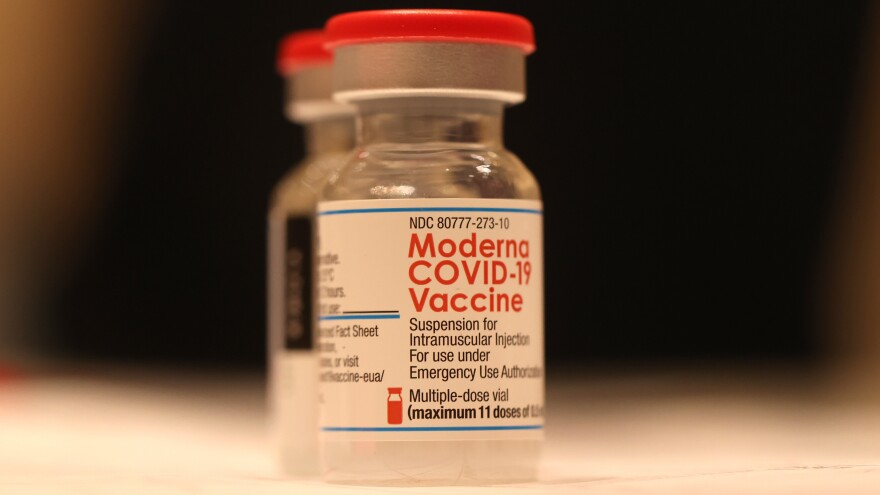Updated June 8, 2022 at 11:04 AM ET
Moderna says its new vaccine candidate, which fights both the original COVID-19 strain and the now-dominant omicron variant, shows a "superior neutralizing antibody response" against the coronavirus compared to its original vaccine.
The "bivalent" vaccine — meaning it targets two different antigens — is Moderna's leading candidate to have an effective booster ready for fall of 2022, the company said.
"We are submitting our preliminary data and analysis to regulators with the hope that the Omicron-containing bivalent booster will be available in the late summer," Moderna CEO Stéphane Bancel said in a news release.
A yearly COVID-19 booster is possible, Moderna says
Because of the higher antibody response seen with the new vaccine candidate, Moderna predicts that people who get the booster will have protection that is "more durable over time" against omicron, compared to the original Moderna vaccine.
The protection is so strong that it could potentially last a year, Dr. Paul Burton, Moderna's chief medical officer, told NPR.
That means that if the company's findings bear out, people might only need annual COVID-19 boosters from now on.
A yearly booster shot would bring new relief to the public and to a health care system that's been stressed by the pandemic, including the need to administer millions of vaccine doses, followed by booster shots.
Health experts contacted by NPR on Wednesday say it remains to be seen how well Moderna's vaccine might work against some of the newer omicron subvariants that are even better at dodging the immune system.
New variants are spreading quickly in the U.S.
The coronavirus has presented a moving target to immunologists, as new variants and strains quickly replace one another. News of Moderna's bivalent vaccine comes as even more contagious omicron variants are taking over in the U.S.
Pfizer and BioNTech are also testing a version of their vaccine that targets the omicron variant.
The original omicron variant quickly dominated transmission in the U.S. after emerging in late 2021. By the end of March, it had been overtaken by the omicron subvariant BA.2 — which has been supplanted in recent weeks by the BA.2.12.1 subvariant, according to the CDC. Now two new omicron variants, BA.4 and BA.5, are quickly spreading.
Adding to the sense of urgency: Yet another wave of infections is likely next winter when the cold weather drives everyone back indoors, where the virus spreads more easily.
This is the second bivalent vaccine Moderna has lauded as a success. The company announced in April that a new version of its vaccine targeting the beta variant appeared to produce high levels of antibodies for months. Some experts called those results a "proof of principle," while others said they needed to see more data about the bivalent approach's benefits.
Copyright 2022 NPR. To see more, visit https://www.npr.org.




